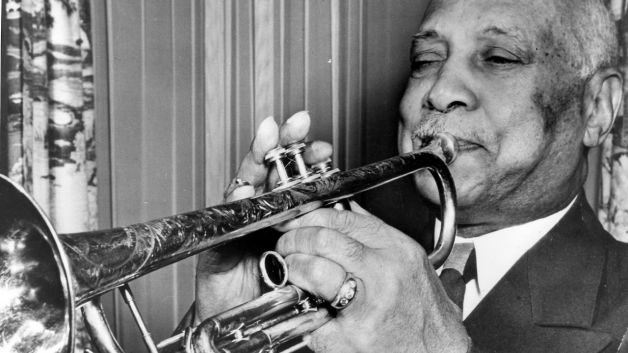
The world of blues music is arguably incomplete without the works of William Christopher Handy (W. C. Handy). Born in 1873, Handy is often referred to as the ‘Father of the Blues’, mostly due to the impressive and innovative techniques he inculcated in to Blues music. Handy’s road to musical bliss developed slowly, and was not without certain obstacles. His family was religious conservatives that out-rightly shunned the complete idea of music, making it all the more difficult for Handy to buy his first guitar. He was, however to begin his musical journey by learning the organ and cornet first.
In his early years, Chris Handy became so proficient with sheet notes and musical instruments that he began teaching and touring other music lovers on the road, before finally taking up a professorship in the Alabama Agricultural and Mechanical University. His career is one of striking magnificence and uniqueness, in the way that it took shape and reached prominence not just in the local setting but as well as at the national and international stages. He grew up learning music, mostly by ear, as he travelled on tours with various minstrel groups, bands and quartets. His incredible capability to transcribe point-accurate music by ear gave him a significant advantage when it came to composing his own works. Most of his earlier works revolved around black ethnicity, importantly introducing folk features in to his arrangements. Many of the techniques, repertoire and arrangements used in blues music today can be traced back to simple 12-bar blues songs like Handy’s earlier records of Memphis Blues, Beale Street Blues, and Saint Louis Blues. However, many of his works differed from the popular 12-bar blues style, in that songs would often feature 8- and 16-bar patterns as well.
Around 1912, Handy became business partner with a university friend named Harry Pace, with whom he worked for the next 8 years. In 1920, Handy saw his music sales go down with the rise of other prominent Jazz artists, and to add to his disillusionment, his partnership with Pace reached an abrupt end. Handy, however, was not so quickly demoralized. He decided to continue operating the recording company he had formed with Pace, even if this meant working alone. In a few years, he was back in business after publishing a few more hit songs like Bessie Smith’s Saint Louis Blues. This really contributed to Handy’s popularity in the music industry, seeing how he was exploring more challenging pastures now. The hit single by Smith became so popular that offers started pouring from the film industry. Director Dudley Murphy urged Handy to collaborate on a motion picture, one that was eventually released in 1929 and aired all across the United States.
Throughout Handy’s career, he sought to espouse on the importance Blues music had in the Black community. This, many believe, finally took shape in some of Handy’s final works, one of which was a project he worked on called Blues: An Anthology – Complete Words and Music of 53 Great Songs. He mostly concentrated on publicizing works of other musicians, while also occasionally contributing original pieces. Some of his later songs included Aunt Hagar’s Blues, Yellow Dog Blues and Atlantic Blues. Towards the end of his career, W. C. Handy spent time performing at various venues and events such as the Chicago World Fair in the early 1930s and the National Folk Festival in the late 1930s. Because of the astounding number of contributions he made to the contemporary and classical Blues genre, he was inducted in the Alabama Jazz Hall of Fame and also had several awards to his name.